Manchester attack: What can be done to make public spaces safe?
- Published
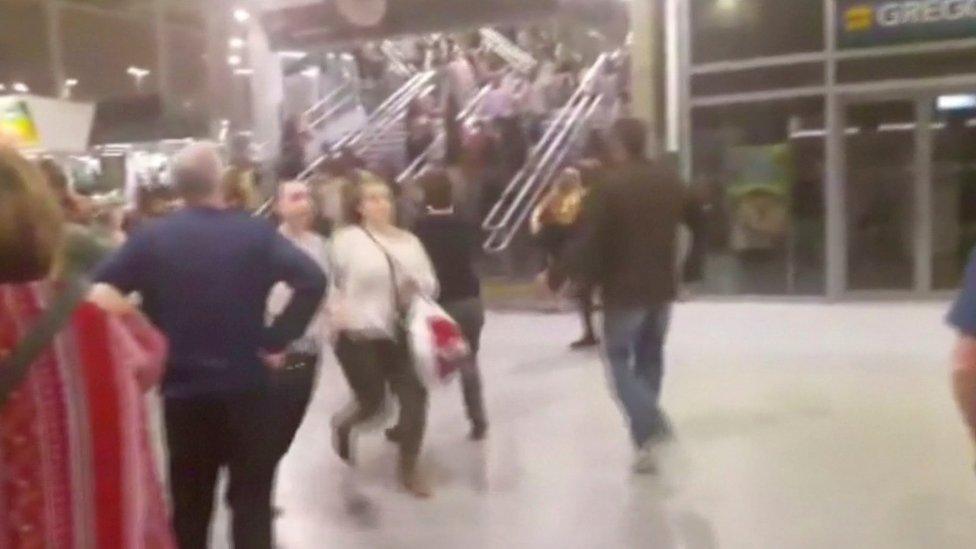
Fans ran down stairs as they left the Manchester Arena after the explosion
A suicide bomber has killed 22 people and injured many more at a concert in the Manchester Arena. Is there any way of protecting crowded public spaces from terrorists?
When counter-terrorism experts talk about protecting crowded places, they ask us to think about security as the rings of an onion.
The centre of the onion is the target - perhaps a government building, military base, shopping centre or other public place.
Around that are the rings of the onion - the obstacles and barriers that an attacker must first get past.
The most obvious defences are physical ones: the bollards, gates and chicanes that can stop attackers intent on using vehicles.
Unfortunately, if these are effective there is the potential that the threat will shift to easier targets, including crowded public spaces.
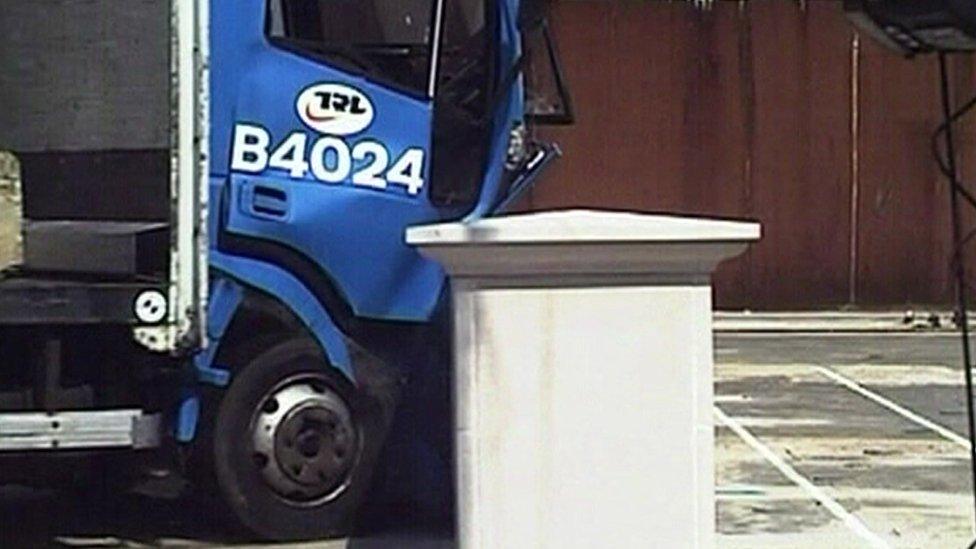
A counter-terrorism lorry test seen by the BBC demonstrated the use of barriers
In an attack such as the one on fans at the Ariana Grande concert, it can appear to be difficult to know how to offer protection.
Where do you put a security perimeter to stop a suicide bomber who can just move to another location?
Substance controls
While it is impossible to stop every attack, what happened at Manchester Arena demonstrates the importance of measures other than physical deterrents.
A series of measures are already in place to try to keep our public spaces safe - the external layers of security.
One change intended to make attacks less likely is the introduction of strict controls on the sale of commonly available substances - including some fertilisers and chemicals - that can be used to make explosives.
Certain chemicals and poisons can be bought only by individuals who have a licence.
Counter-terrorism workers also offer shops and suppliers advice to ensure that these materials are kept securely, external.
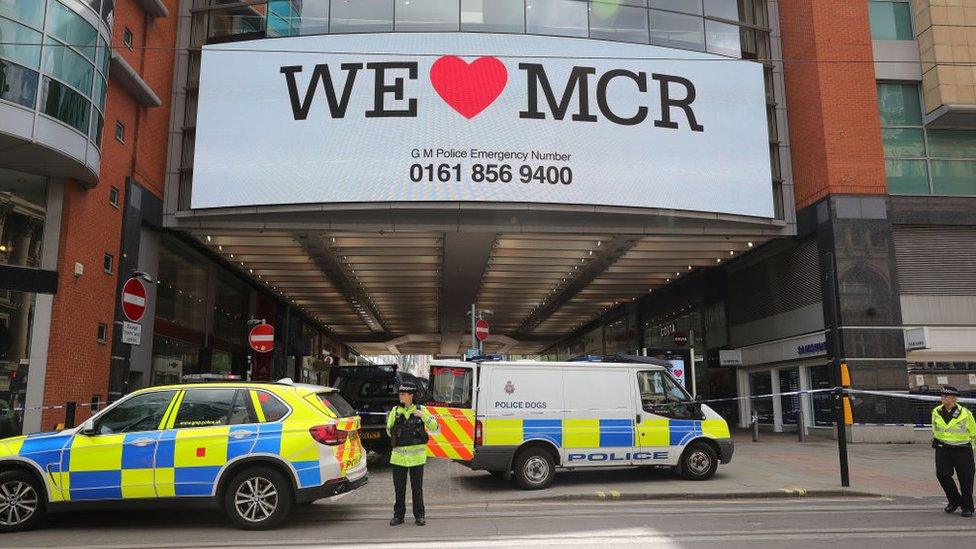
There is also advice for businesses, external about how to keep their staff and visitors safe.
Simple solutions such as staff training, communication about security tools and security-minded organisational practices can significantly improve a business's ability to respond to terrorist attacks.
This training is delivered across a range of organisations - including stadiums - under an initiative known as Project Argus, external.
Businesses can work through terrorist scenarios in a series of phases, to allow staff to practise risk assessment and decision-making, and liaison with the emergency services.
Other campaigns have encouraged businesses to get to know their customers - and to start asking questions if they have concerns.
Responsive approach
This approach demonstrated its effectiveness when five men involved in a bomb plot that could have killed hundreds, external were caught.
Staff at a storage unit had raised concerns about why a single large bag of fertiliser was being stored and called in police, who swapped the fertiliser for cat litter.
These policies and practices are incredibly effective, but individuals intent on terrorism can and do find ways round them.
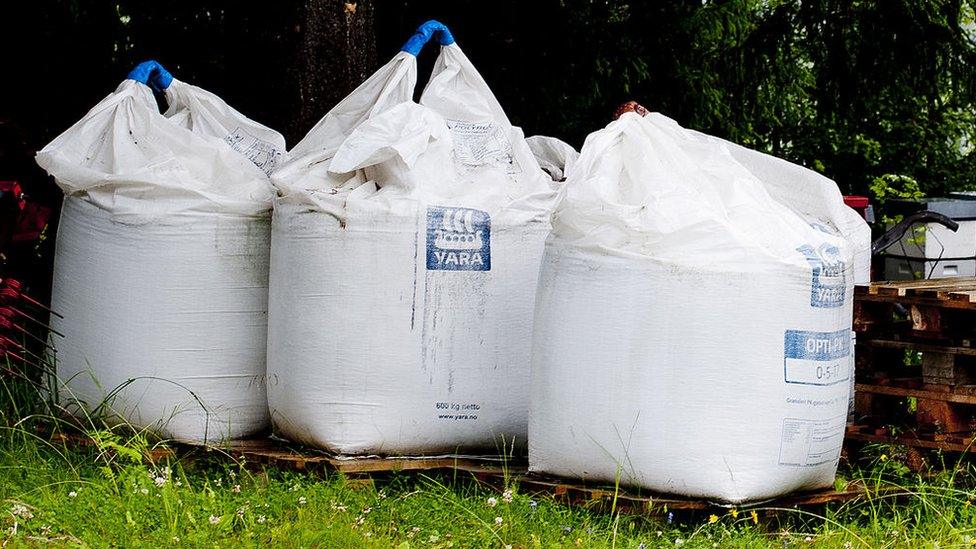
The fertiliser and chemicals used by the Norwegian far-right terrorist Anders Breivik to make bombs that killed 77 people in 2012 were acquired legally because he ran a farm.
The ability of terrorists to adapt their methods and target selection means the policies and practices that form the outer edges of our defences - the layers of the onion - must change as frequently and rapidly as terrorists change their methods.
Counter-terrorism initiatives, such as the Act campaign, external - which stands for Action Counters Terrorism, and encourages people to report suspicious activity - assume that members of the public can play a critical part in helping to tackle the terrorist threat.
Similarly, the British Transport Police campaign See It, Say It, Sorted, external encourages train passengers and station visitors to report anything unusual.
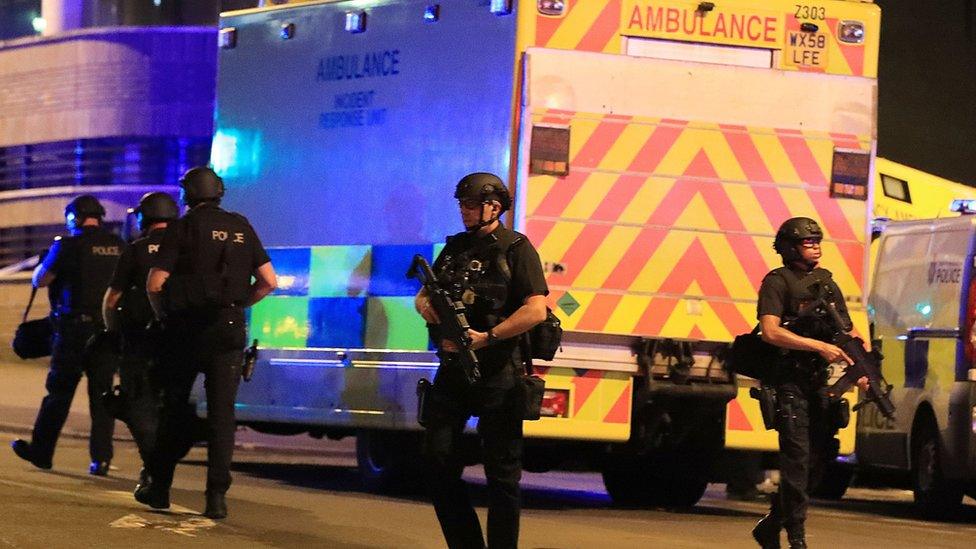
The blast happened at the end of an Ariana Grande concert on Monday night
This type of campaign has been proven to be effective.
Run, Hide, Tell
For example, a train passenger noticed that a man was watching a number of videos of explosions during her journey.
She reported her concerns, and further investigation identified this individual as a threat to national security.
Public information campaigns such as the Run, Hide, Tell film, external can also significantly improve people's awareness of what they should do if they ever have the misfortune of being caught up in an attack.
Finally, it is important to recognise the rationale employed by terrorists when targeting public places.
In carrying out these attacks, terrorists hope to create fear, uncertainty and outrage.
They also want us to change our behaviour, to lose trust in the security services, the government and - ultimately - one another.

About this piece
This analysis piece was commissioned by the BBC from an expert working for an outside organisation.
Dr Brooke Rogers is reader in risk and terror, external in the Department of War Studies, at King's College London. Follow her @DrBrookeRogers, external.

- Published24 May 2017
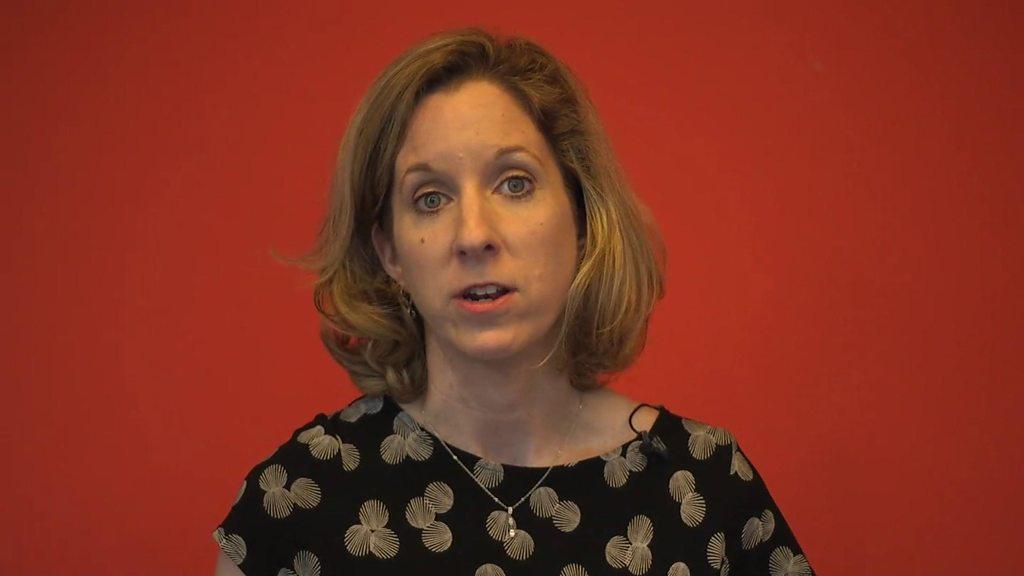
- Published24 May 2017
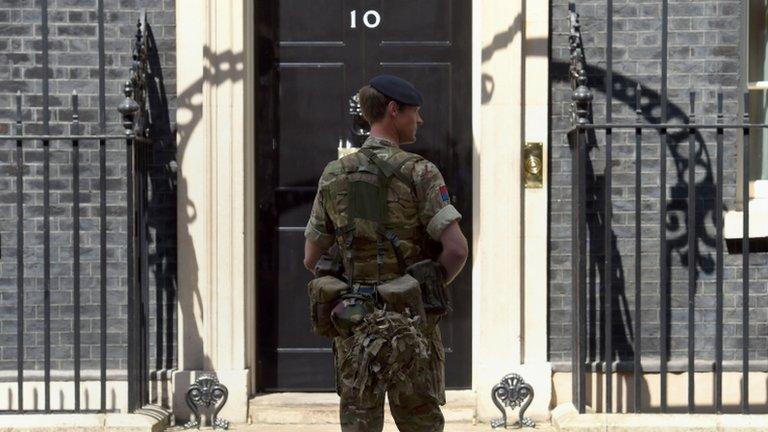
- Published12 June 2017

- Published12 June 2017
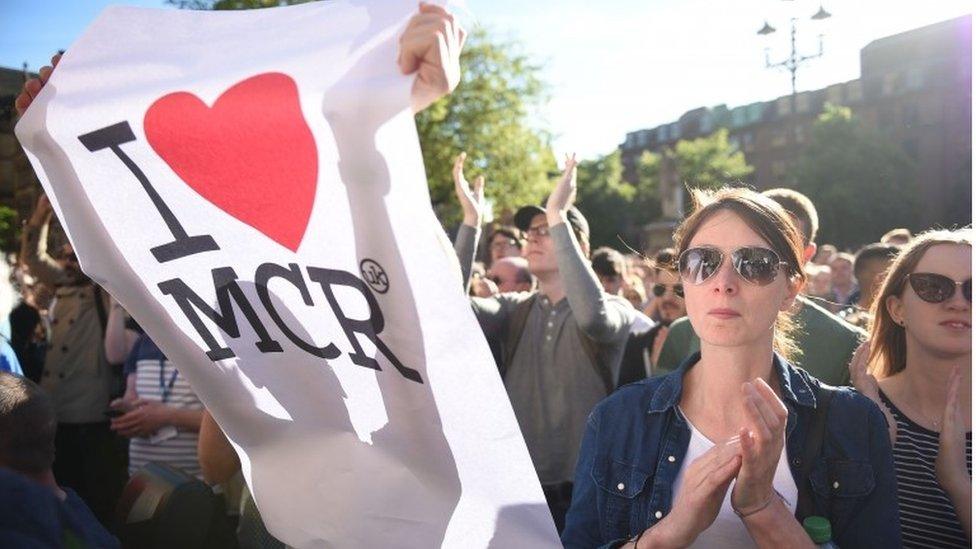
- Published23 May 2017
- Published20 December 2016